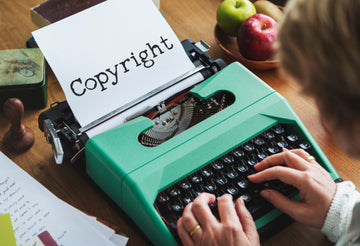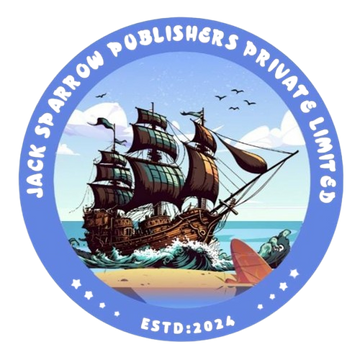Copyright & Plagiarism Policy

Copyright & Plagiarism Policy
Jack Sparrow Publishers respects and protects intellectual property rights. Authors submitting their work must ensure the originality of their content and acknowledge all sources properly.
- All manuscripts are checked for plagiarism using advanced detection tools before review.
- Submissions with plagiarized content or copyright violations will be immediately rejected.
- Upon publication, authors retain the copyright to their work, granting us the right to distribute and promote the content.
- Authors are responsible for securing permissions for any third-party content used in their work.
Copyright Policy


Upon acceptance of a manuscript, authors are required to sign a Copyright Transfer Agreement (CTA) or License to Publish Agreement.
For traditional publishing, the copyright is transferred to the Publisher, while moral rights remain with the author.
For Open Access publications, copyright remains with the author, and the work is published under a Creative Commons license (CC BY, CC BY-NC, or as agreed).


Authors retain the right to:
Use their work for teaching, research, or presentations.
Deposit preprints or accepted manuscripts in institutional repositories
(following any embargo period).
Reuse content in future works with proper citation.


Authors must obtain written permission for any material (figures, tables, images, text extracts) reproduced from other copyrighted works.
Proof of permission must be submitted along with the manuscript.


Upon acceptance of a manuscript, authors are required to sign a Copyright Transfer Agreement (CTA) or License to Publish Agreement.
For traditional publishing, the copyright is transferred to the Publisher, while moral rights remain with the author.
For Open Access publications, copyright remains with the author, and the work is published under a Creative Commons license (CC BY, CC BY-NC, or as agreed).


Authors retain the right to:
Use their work for teaching, research, or presentations.
Deposit preprints or accepted manuscripts in institutional repositories
(following any embargo period).
Reuse content in future works with proper citation.


Authors must obtain written permission for any material (figures, tables, images, text extracts) reproduced from other copyrighted works.
Proof of permission must be submitted along with the manuscript.
Plagiarism Policy


Plagiarism is the act of presenting another person’s ideas, data, words, or creative expressions as one’s own without proper attribution. This includes:
Direct plagiarism – Copying text verbatim without quotation marks or attribution.
Self-plagiarism – Reusing one’s own previously published content without citation.
Mosaic plagiarism – Interweaving phrases from different sources without proper credit.
Data plagiarism – Using others’ research data without acknowledgment.


All submissions undergo plagiarism screening using Turnitin, iThenticate, or equivalent tools.
A similarity index above 15–20% (excluding references, quotations, and common phrases) will trigger a manual review.
The editorial office may request revisions or reject
the manuscript outright if plagiarism is confirmed.


Before publication: Manuscripts with confirmed plagiarism will be rejected, and authors may be barred from future submissions.
After publication:
Minor plagiarism: A formal correction will be issued.
Significant plagiarism: The work will be retracted, and a notice of retraction will be published.
In severe cases, the Publisher will notify the authors’ institutions and/or funding bodies.


Ensure all content is original and properly cited.
Provide accurate and complete attribution for all sources.
Retain raw data and make it available upon request for verification.
Disclose any overlap with previously published
work.


Maintain a robust plagiarism detection and review process.
Provide clear guidance to authors on citation and attribution.
Take prompt, fair action when plagiarism or copyright infringement is detected.


This policy aligns with the COPE Code of Conduct, WIPO copyright guidelines, and relevant international copyright laws, including:
Berne Convention for the Protection of Literary and Artistic Works
WIPO Copyright Treaty (WCT)
TRIPS Agreement


This policy is reviewed annually to incorporate changes in legal requirements, ethical standards, and technological advances in plagiarism detection.


Plagiarism is the act of presenting another person’s ideas, data, words, or creative expressions as one’s own without proper attribution. This includes:
Direct plagiarism – Copying text verbatim without quotation marks or attribution.
Self-plagiarism – Reusing one’s own previously published content without citation.
Mosaic plagiarism – Interweaving phrases from different sources without proper credit.
Data plagiarism – Using others’ research data without acknowledgment.


All submissions undergo plagiarism screening using Turnitin, iThenticate, or equivalent tools.
A similarity index above 15–20% (excluding references, quotations, and common phrases) will trigger a manual review.
The editorial office may request revisions or reject
the manuscript outright if plagiarism is confirmed.


Before publication: Manuscripts with confirmed plagiarism will be rejected, and authors may be barred from future submissions.
After publication:
Minor plagiarism: A formal correction will be issued.
Significant plagiarism: The work will be retracted, and a notice of retraction will be published.
In severe cases, the Publisher will notify the authors’ institutions and/or funding bodies.


Ensure all content is original and properly cited.
Provide accurate and complete attribution for all sources.
Retain raw data and make it available upon request for verification.
Disclose any overlap with previously published
work.


Maintain a robust plagiarism detection and review process.
Provide clear guidance to authors on citation and attribution.
Take prompt, fair action when plagiarism or copyright infringement is detected.


This policy aligns with the COPE Code of Conduct, WIPO copyright guidelines, and relevant international copyright laws, including:
Berne Convention for the Protection of Literary and Artistic Works
WIPO Copyright Treaty (WCT)
TRIPS Agreement


This policy is reviewed annually to incorporate changes in legal requirements, ethical standards, and technological advances in plagiarism detection.

